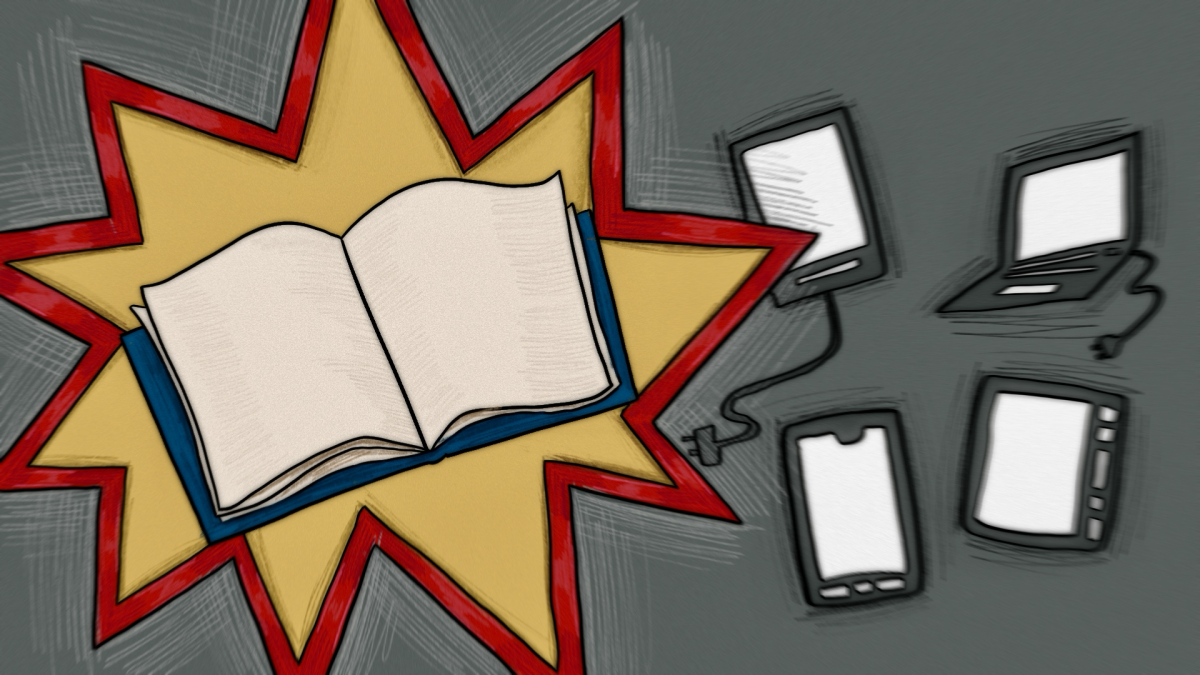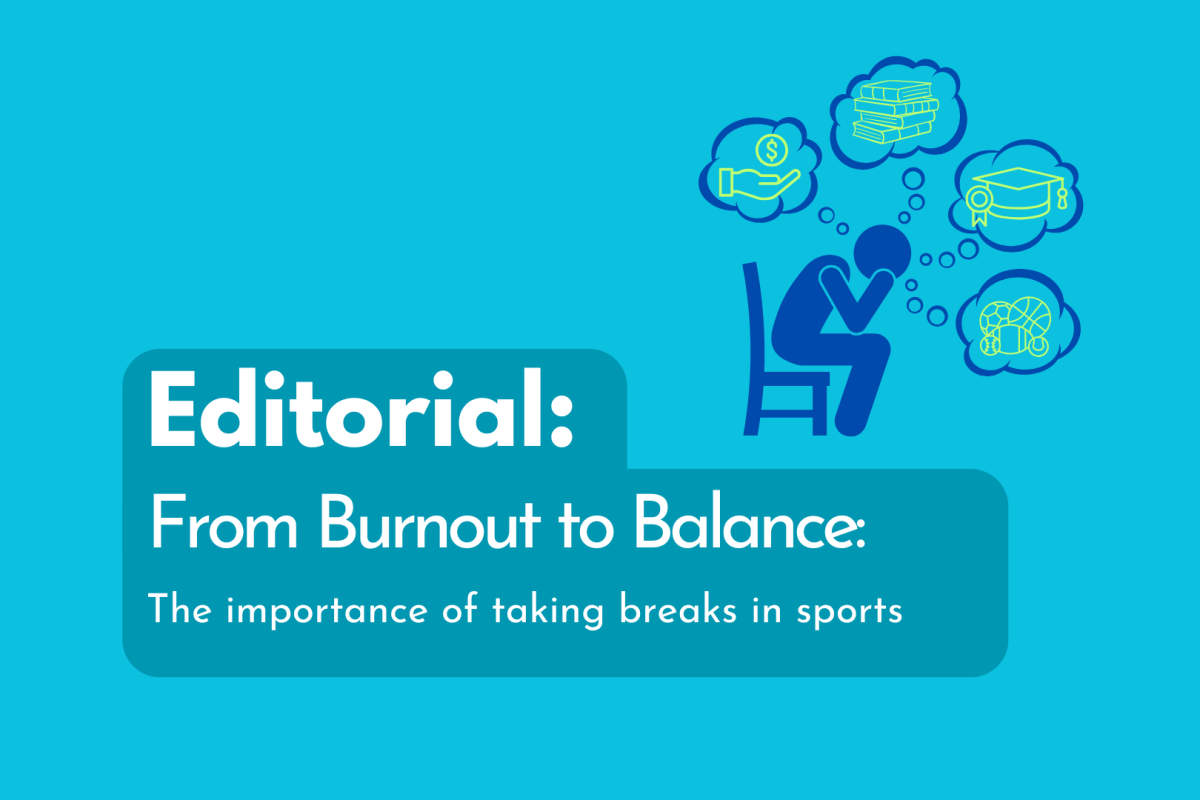One of the best feelings in the world is diving into a beautiful book where everything is perfect: the feel, the scent, the font, the pages. The same experience cannot be captured if the book is digital.
Ever since the release of Kindle in 2007, the digital book market has skyrocketed, with their average yearly sales totaling around $13.81 billion according to the Whop blog. While digital books might seem intriguing and beneficial at first glance, printed books have more advantages that e-books could only dream of.
When reading print books, you are transported through the feel of the pages into an alternate world with words as the guide to the journey you are about to embark on. With the simple flip of a page, you are able to relive the experience over and over again. Re-reading an old book is like taking a stroll down memory lane: maybe there’s an old concert ticket as a bookmark or there’s a stain where you rested your coffee mug on the cover; these all allow for deeper emotional connections to the story itself.
Printed books provide more than just nostalgia, however. Educational books, such as textbooks, are a crucial part of the learning process for students. While these textbooks may be online, a 2018 study published in the Educational Research Review showed that students’ reading comprehension was stronger with print books rather than using digital text. This stronger understanding then leads to students performing better on exams and projects compared to students who reviewed the material online.
Teachers have also expressed their opinions regarding this debate. According to a survey conducted by Bay View Analytics in April 2023, published in “Curricula of Many Sources,” over 57% of teachers agree that “they prefer print materials over digital for teaching, and students learn better from print materials than they do from digital.”
In addition, print books allow for fewer distractions and more focus on the material at hand. When using a PDF version of a textbook, most readers have access to the internet, where they are more likely to be sucked into the void of unrelated content. With phones already being a distraction, why should schools give an opportunity for students to fall down the internet rabbit hole?
From a health perspective, ebooks are way worse for one of the most important aspects of the body: the eyes. According to a 2022 article by the Mayo Clinic, activities that require looking at a screen, such as using a Kindle, cause people to blink less. The less we blink, the drier our eyes become, which can directly impact our vision with blurred vision and irritation. Almost all of our days are spent on a screen anyway, so reading traditional printed books can be a great time to finally give our eyes a break.
While some think ebooks are better for the environment overall, think of buying print books as an investment rather than a waste of money. Books can be passed down from generation to generation or from friend to friend and never go out of style. If a book might feel useless, donate it to a library or an organization that collects books for people in need, as they are always in constant need. You could also simply donate extra books at Savers or sell them at a yard sale.
The power print books hold is undeniable and will never be replicated through e-books. Buying physical books can positively impact so many aspects of life for all people, so next time go to a bookstore when you are in need of a book or use the print edition of your textbook in order to rekindle the joy, deepen your learning and re-immerse yourself in the extraordinary world of reading.










